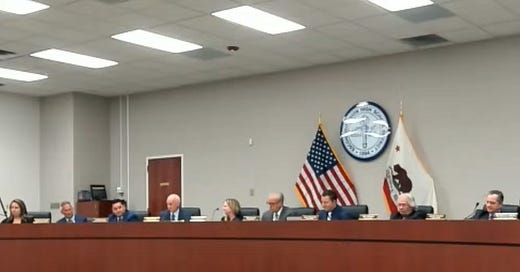EUHSD Board Puts Ethnic Studies Pilot at Risk
Ethnic studies must be offered by the 2025-26 school year, but the district may not have time for a pilot course
At the May 14, 2024 board meeting, Board President Christi Knight, and board members Bob Weller and David Vincent, voted against approving the ethnic studies pilot proposed by the district, while board members Bill Durney and Ryan Williams voted in favor of the pilot.
The proposed pilot was the result of over 2 years of work by the Ethnic Studies Commit…
Keep reading with a 7-day free trial
Subscribe to District Voices Of Escondido to keep reading this post and get 7 days of free access to the full post archives.



